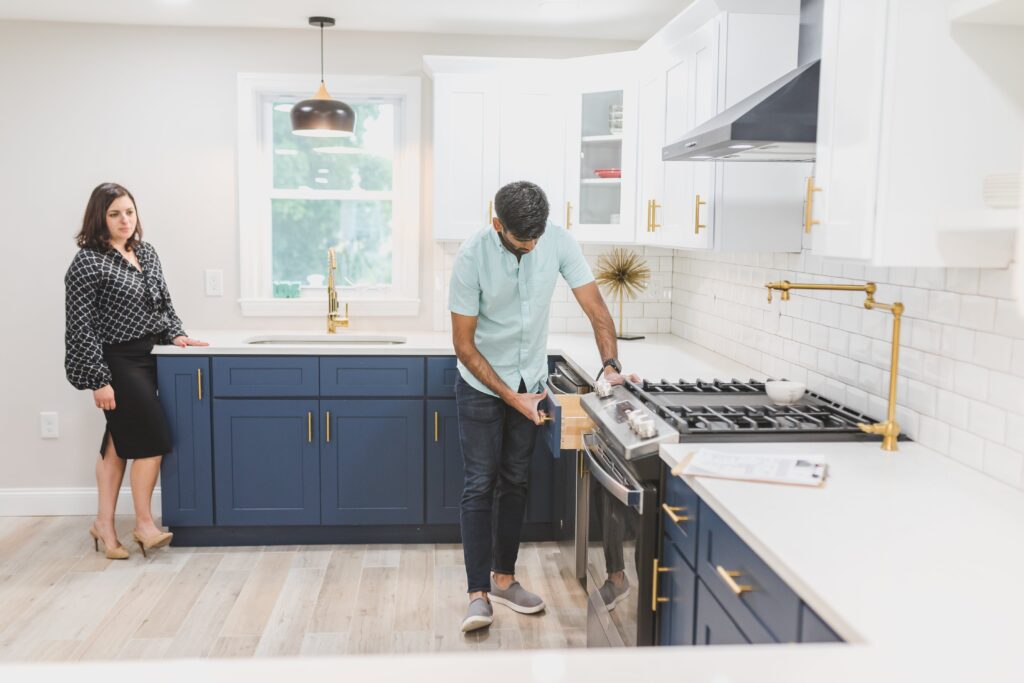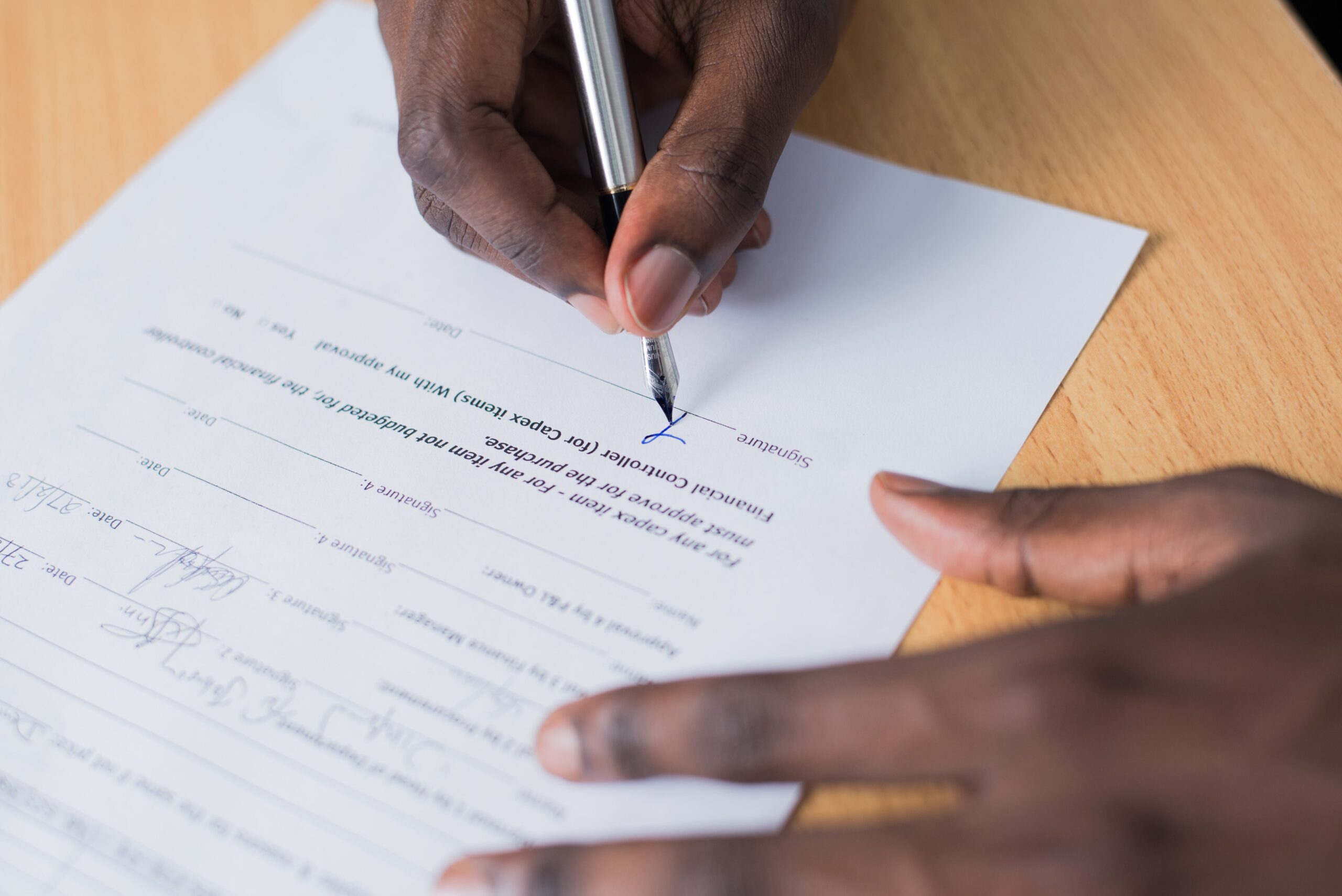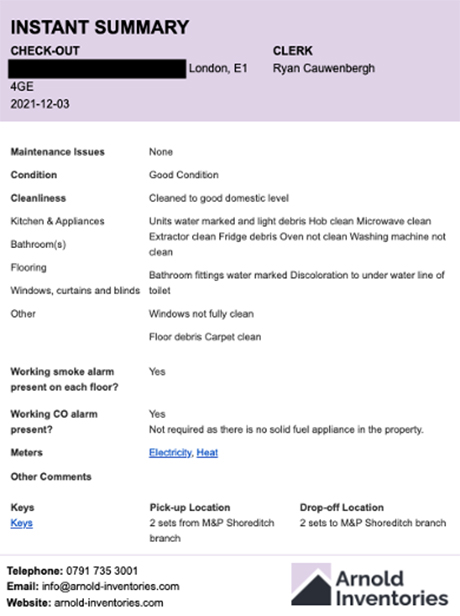When you are renting out a property, having the security of a deposit is not enough to provide you with peace of mind that your property is being looked after. Not only this, but it’s your job as a landlord to ensure your property is safe for tenants at all times, which is very difficult to manage without carrying out regular property inspections.
This guide will delve deeper into the importance of landlord inspections, the different types, how often they should be carried out, how to prepare, what to check, and when to seek the property services of professionals.
Why are Property Inspections Important?
Maintaining the Condition of Your Property
Arguably the most important reason for carrying out inspections is to ensure your property remains in good condition. By inspecting the property either yourself or using a third party company such as Arnold Inventories, you can check for any signs of damage caused during a tenancy. This allows you to identify and deal with any issues to ensure your property is in the best condition during the tenancy.
Detecting Issues Early
Another consideration when it comes to the benefits of carrying out inspections of rental properties is that it enables you to identify issues early. You can’t always rely on tenants reporting issues in the property, particularly when they have caused the issue or may feel they would be blamed, which is why it’s better to find out for yourself. By fixing issues early, you are likely to prevent a more complex or costly repair later on. Mid term inspections can be a great solution for this and can also ensure the property remains compliant with smoke and CO alarm regulations.
Ensuring Tenant Compliance
Inspections are the ideal opportunity for landlords to ensure tenants are adhering to the terms of the lease agreement. This means any problems can be dealt with sooner rather than later, and can prevent disputes later down the line.

How Often Should Inspections Take Place?
It is essential to find a balance between carrying out enough inspections to provide the reassurance you need that your property remains in a good condition, but also respecting the privacy of your tenants by honouring their right to ‘quiet enjoyment’.
Types of Landlord Inspections
1. Check-in Reports
This is a one-off inspection that takes place when a tenant moves into a property, or just before. The idea of a check-in report is to have notes and evidence of the condition of the property at the start of a tenancy, to give a baseline to compare to for future assessments.
2. Periodic Inspections
Periodic inspections, or mid-term inspections, are any that take place between check-in and check-out. It is down to you how often you feel these are needed, but typically landlords choose to carry them out on a 3-monthly basis. Should you never encounter any problems during your visits, you could then reduce the frequency of these to build a trusting relationship with your tenants.
3. Check-out Inspections
A check-out inspection is the final check carried out at the end of a tenancy. It allows you to compare the condition of the property at the end of the tenancy to the beginning, and to deduct any repair costs from the tenant’s deposit where required.
How to Prepare for a Successful Inspection
Communicate Effectively
Communication is key in any landlord-tenant relationship. It builds trust between both parties, and gives a clear indication of expectations. Ensure you have clear lines of communication with your tenant, and explain to them the purpose of the inspection before scheduling it in. Knowing that it is a routine inspection and not something they need to worry about will help put their mind at ease, and they will be more cooperative in allowing you to carry out the inspection.
Give Your Tenants Notice
Ensuring you respect the privacy of your tenant by not turning up unarranged is vital for building a strong relationship. Where possible, give at least 48 hours notice of an inspection, but at the very least you should provide 24 hours notice. This allows tenants to plan accordingly, adjust their schedule if needed, and tidy the property. You should also try to be accommodating where possible to the tenant’s preferred times, especially when giving the minimum amount of notice.
The only exception to this should be if you suspect illegal activities are taking place in the property, in which case immediate intervention without notice would be applicable.
Set Clear Expectations
Landlord property inspections can be worrying for tenants, particularly when they don’t know what you expect from them. Make sure you set clear expectations right from the beginning of the tenancy, and reiterate this when arranging the inspection, to eliminate any uncertainty. Where possible, provide a checklist of areas that will be assessed, prior to the visit Using a 3rd party inventory company like Arnold inventories alleviate these concerns as tenants know they will receive an independent unbiased report at the end of the inspection.

Flat or House Inspection Checklist
So, you have your landlord inspection arranged with your tenant, but what is it you should actually be looking for?
Key points to consider during any inspection on a rental property include:
- Cleanliness
- Cosmetic damage
- Structural damage
- Signs of damp and mould
- Leaks
- Blocked drains
- Condition of furniture
- Garden maintenance
- Pest infestations
- Safety issues
- Smoke alarms and carbon monoxide alarms
- Presence of pets
- Unauthorised occupancy
The checks are generally the same whether it is a flat or house inspection, there just may be some checks that aren’t applicable for a flat inspection, such as garden maintenance if it doesn’t have a garden.
You can see a sample of our Check-in Reports, Mid-Term Inspections, and Check-out reports for more detailed information on what’s included.
Can a Tenant Refuse Access?
A tenant can technically refuse access to a property for a landlord inspection. The first step in this instance is to try to reason with the tenant to maintain a positive relationship with them. It is important as a landlord to be as flexible as you can to find a date and time which is convenient to them, as they may just have a busy schedule.
If a tenant still isn’t willing to grant you access to the property, they may be in breach of the tenancy agreement. Taking legal action should be the very last measure you take to gain access to the property, but may be required in some circumstances.
Do tenants need to be present for inspections?
Tenants don’t need to be present for inspections if they don’t wish to be, but it is beneficial for them to be there. Your tenant has every right to be present for periodic inspections, and you cannot force them to leave the property during an inspection.

Benefits of Hiring a Professional Property Inspector
As well as the expertise and experience that a property inspector can bring, there are a number of other benefits of hiring an inspector rather than carrying out checks yourself.
Having someone who is impartial ensures a fair home inspection, which doesn’t favour either party. This is likely to put your tenant’s mind at ease, as it removes any personal bias and only sticks to the facts of the findings.
The experience of a property inspector comes with advanced knowledge of legal compliance, including rental property inspection laws in the UK. There could be legalities you are not aware of as a landlord, which could cause disputes with tenants.
All reports by a property inspector should be delivered in a professional way. They should include detailed explanations of any findings, along with photographic evidence which can be referred back to when needed. This can prove invaluable in the case of a dispute.
Speak to Arnold Inventories Today
Considering hiring a professional property inspector for your next assessment? Improve your property management with detailed reporting, advanced expertise, and support from Arnold Inventories.
Reach out to our friendly team today to discuss your requirements with us. Use our online contact form, or give us a call on 020 4579 9597 for a no-obligation chat.




0 Comments
Leave A Comment